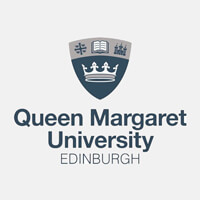fees waived
Nutrition, MNutr (Hons)
Queen Margaret University, United Kingdom
Subject ranking
UK / Times 2025 26th
UK / QS 2025 79th
UK / Guardian 2025 91st
Costs
food & rentS$17.2K / year
Entry requirements
Scholarships
6 available
11 - 20 available
More than 50 available
Limited quantity
Information
Code
Intakes
Website (External)
Programmes
Information
Duration
2029
Course summary
This comprehensive integrated four year Masters of Nutrition course provides a robust combination of the theoretical understanding and practical skills essential for cultivating a rewarding career as a nutritionist. Students commence the course with a view to graduating with a Master of Nutrition (MNutrition) in four years. There is an option for students to transfer to a BSc (Hons) route at the end of year two and upon graduation, both pathways lead to eligibility for registration with the AfN as an associate nutritionist. Both pathways develop professional skills, knowledge and attributes through a combination of university and placement-based learning. The undergraduate master’s offer an opportunity to delve deeper into areas such as leadership, service improvement, research and public health, at a higher level. The field of nutrition affects everyone in the world every day and has grown in importance in recent years. The science of nutrition employs evidence-based approaches to highlight the relationship between our diet and health, and it enables us to optimise health and prevent disease.What and how we eat is vital to individual and community health and it is an engaging and rewarding subject to study. If we are what we eat, then nutrition can tell us a lot about who we are, how we live and how we can improve the health of society. Why QMU?
- Staff expertise: Your learning will be curated by registered nutritionists and experts in the field who are actively researching some of the most interesting and impactful topics in the field of nutrition. QMU has wide ranging and widely recognised expertise in both health and food sciences, and is home to the Scottish Centre for Food Development and Innovation.
- Excellent facilities: You will build professional proficiency in our specialist labs, using advanced equipment and proven research techniques. The practical teaching facilities include specialist microbiology, chemistry, food handling, and nutritional assessment laboratories.
- Professional accreditation/registration: The course is accredited by the Association for Nutrition (AfN) and on graduation with an MNutrition or BSc (Hons) degree you can register with the AfN as an associate nutritionist.
- High rankings in the UK: QMU is ranked in the top 3 of Scottish higher education institutions for Nutrition & Food Science (Guardian University Guide 2024).
Modules
Modules are subject to change. Year 1: Human Physiology, Skills for Academic & Professional Success, Food, Lifestyle and Society, Introduction to Food ScienceBiochemistry, Cell Biology and Genetics, Sustainable Food Systems; Year 2: Health Coaching Conversations, Medical Microbiology and Immunology, Nutrient Metabolism, Evidence-Based Practice, Pharmacology, Nutrition, Food & Nutrition Policy;Year 3: (MNutrition route) Disease Aetiology and Management, Sports and Performance Nutrition, Nutrition through the Life-CoursePlacement, Clinical Nutrition, Epidemiology in Public Health, Nutrition Communication;Year 3: (BSc route) Disease Aetiology and Management, Sports and Performance Nutrition, Nutrition through the Life-Course, Placement, Clinical Nutrition, Epidemiology in Public Health;Year 4: (MNutrition route) Current Issues in Nutrition Science, Nutrition in Practice, Enterprise for Health, Demonstrating Impact, Honours ProjectYear 4: (BSc route) Current Issues in Nutrition Science, Nutrition in Practice or Enterprise for Health*, Honours Project
Assessment method
Teaching is organised across two semesters each year. You will learn through face-to-face or online lectures, seminars, practical workshops, self-study packs and our well-equipped specialist laboratories, including microbiology, chemistry, food handling, performance and exercise, and nutritional assessment laboratories. Outside these timetabled sessions you will be expected to continue learning through self-study. You will be assessed by a variety of methods (for example: written and practical exams, case studies, written assignments and presentations) at the end of each module or semester.Practical learning in real-world environments is the perfect way to consolidate your skills. In Year Three, you will undertake a compulsory nutrition placement in a setting of your choice and with the support of your tutors, through the placement module. This can be in a variety of settings such as schools, government agencies, public health organisations, community groups, laboratories, private practices, sports teams, care homes, or food and drink companies. This module has been organised to allow students to undertake their placements overseas if they wish to do so. The placement module is a great practical experience, providing students with an opportunity to network within their profession, and to enhance their employability.
Professional bodies
Professionally accredited courses provide industry-wide recognition of the quality of your qualification.- Association for Nutrition
Qualified teacher status (QTS)
To work as a teacher at a state school in England or Wales, you will need to achieve qualified teacher status (QTS). This is offered on this course for the following level:- Course does not award QTS
Modules are subject to change. Year 1: Human Physiology, Skills for Academic & Professional Success, Food, Lifestyle and Society, Introduction to Food Science Biochemistry, Cell Biology and Genetics, Sustainable Food Systems; Year 2: Health Coaching Conversations, Medical Microbiology and Immunology, Nutrient Metabolism, Evidence-Based Practice, Pharmacology, Nutrition, Food & Nutrition Policy; Year 3: (MNutrition route) Disease Aetiology and Management, Sports and Performance Nutrition, Nutrition through the Life-Course Placement, Clinical Nutrition, Epidemiology in Public Health, Nutrition Communication; Year 3: (BSc route) Disease Aetiology and Management, Sports and Performance Nutrition, Nutrition through the Life-Course, Placement, Clinical Nutrition, Epidemiology in Public Health; Year 4: (MNutrition route) Current Issues in Nutrition Science, Nutrition in Practice, Enterprise for Health, Demonstrating Impact, Honours Project Year 4: (BSc route) Current Issues in Nutrition Science, Nutrition in Practice or Enterprise for Health*, Honours Project
A local representative of Queen Margaret University in Singapore is available online to assist you with enquiries about this course.

